Triangle Strategy review
I can’t think of something in gaming more like Game of Thrones than Triangle Strategy. It was a fair chunk of time into proceedings before the comparison came to mind, but after jumping back and forth between historically honourable houses in the land of Norzelia and having lengthy discussions with politicians masquerading as leaders, I couldn’t help but feel as though I was taking part in some sort of Stark vs Lannister homage.
Let me be clear, this is no bad thing, either. But it’s worth pointing out that there’s a lot of talking in Triangle Strategy. If you’ve played the three chapter demo, you might already be thinking that’s the case, but no. Imagine however much talking and text you’re thinking about right now, and then double it. In fact, there are some chapters that fly by with no combat whatsoever, and very little interaction aside from hitting the button to progress a conversation. If that’s a deal breaking, at least now you know it, but you’ll be missing out on a fantastic game if it is.
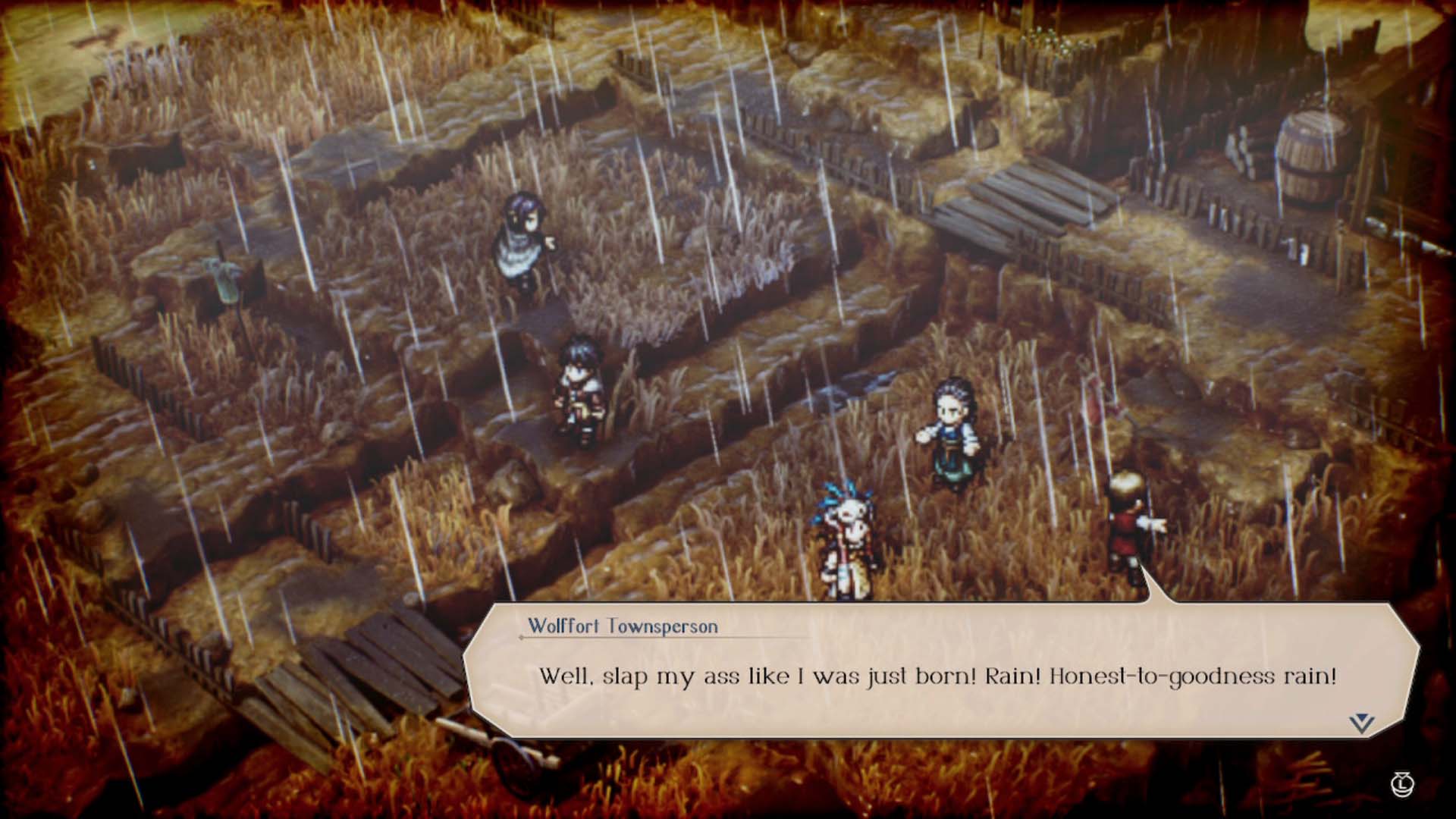
There are four phases, or parts that make up Triangle Strategy. There’s the aforementioned story scenes, but even that splits up offering optional scenes you can experience to gain deeper knowledge, and there’s also companion stories which let you learn more about your companions. Then there’s exploration phases, which let you walk around the gorgeous artwork and talk to people, again, learning more about the situation and how they feel about things.
This is important as it plays into the third phase of play, the decision making. Playing Serenoa of House Wolffort, you are a noble, kind leader. Serenoa doesn’t make decisions himself, instead valuing his cabal of cohorts above all else, and allowing each major decision to be resolved via a vote. Before the vote happens you can see how each member of your party is planning to vote, and you can change their minds. This is done via a combination of knowledge gained via the overall world experience, but also speaking to residents and choosing the right dialogue options.
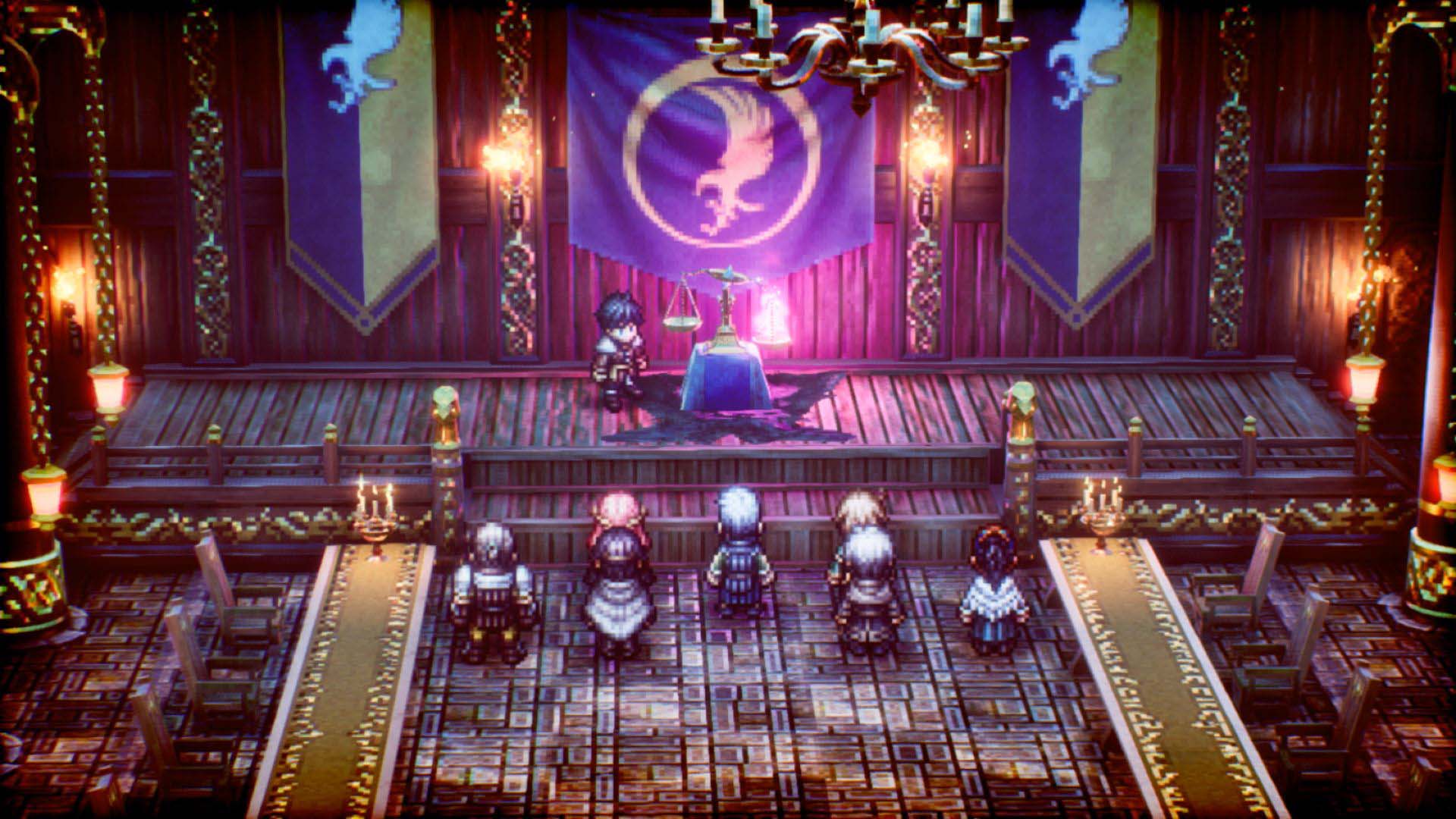
Further choices are opened up should you explore every nook and cranny, and it’ll help you truly choose your path. Essentially you use your political skills and knowledge to influence your friends to vote the way you want to, but it doesn’t always work, and some characters are steadfast in their beliefs, whether morally right or wrong. These choices create the branching narrative of Triangle Strategy, and even early choices will send you in a completely different path than the others. This is a game that, if you enjoy, you’ll want to play again and see how different choices play out, because there are numerous huge diverting paths here, and I ended up with lots of save files just in case I felt I had messed up.
The final part of Triangle Strategy is the combat, and once again, you need to be prepared to put a lot of time and effort into this phase. As I reached the conclusion of the story, it wasn’t uncommon for me to spend well over an hour per battle. It’s worth noting that it’s not as though there are hundreds of battles, because as mentioned, some chapters will progress with no conflict taking place.
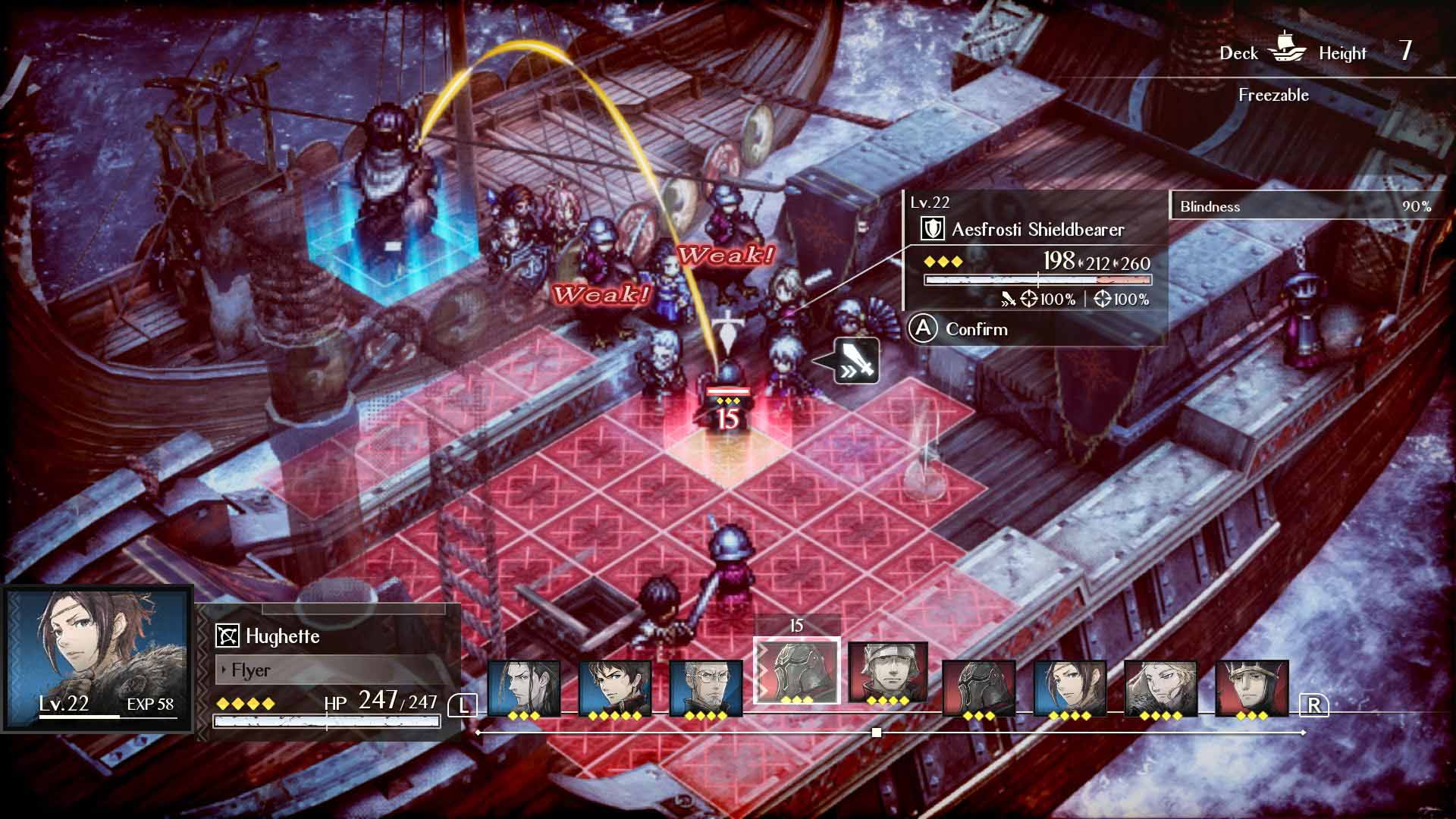
Here, however, you’ve essentially got a faithful reimagining of the tactics-style of game. Turn based, with every character offering something a bit different. Early on I would lean on Anna, for example, as her skill is that she can attack twice on every turn. Eventually, this just wasn’t cutting it, because while she remained a mainstay, she just never did enough damage. You have to learn the systems, you see. For example, there’s a major battle which takes place in a courtyard. You can be overwhelmed quickly with the number of opponents, but if they approach you quickly via the water feature, you can use mages to electro-shock them for both damage, and paralysis. I can’t imagine how hard that fight would be without my mages, honestly.
If there’s a criticism of Triangle Strategy, it’s sadly with the battles. I want to be clear here: I didn’t skip a single optional thing at all, yet no matter what I did, each time a new battle would be offered, I’d be under-levelled. Often this would mean I’d fail the battle first time, then because you keep your progression from the failed battle, meant I’d be at the right level, with the knowledge I needed to succeed as well, second time around. Not for nothing, but those failed battles would be thirty minutes of lost time, easily, which isn’t great.
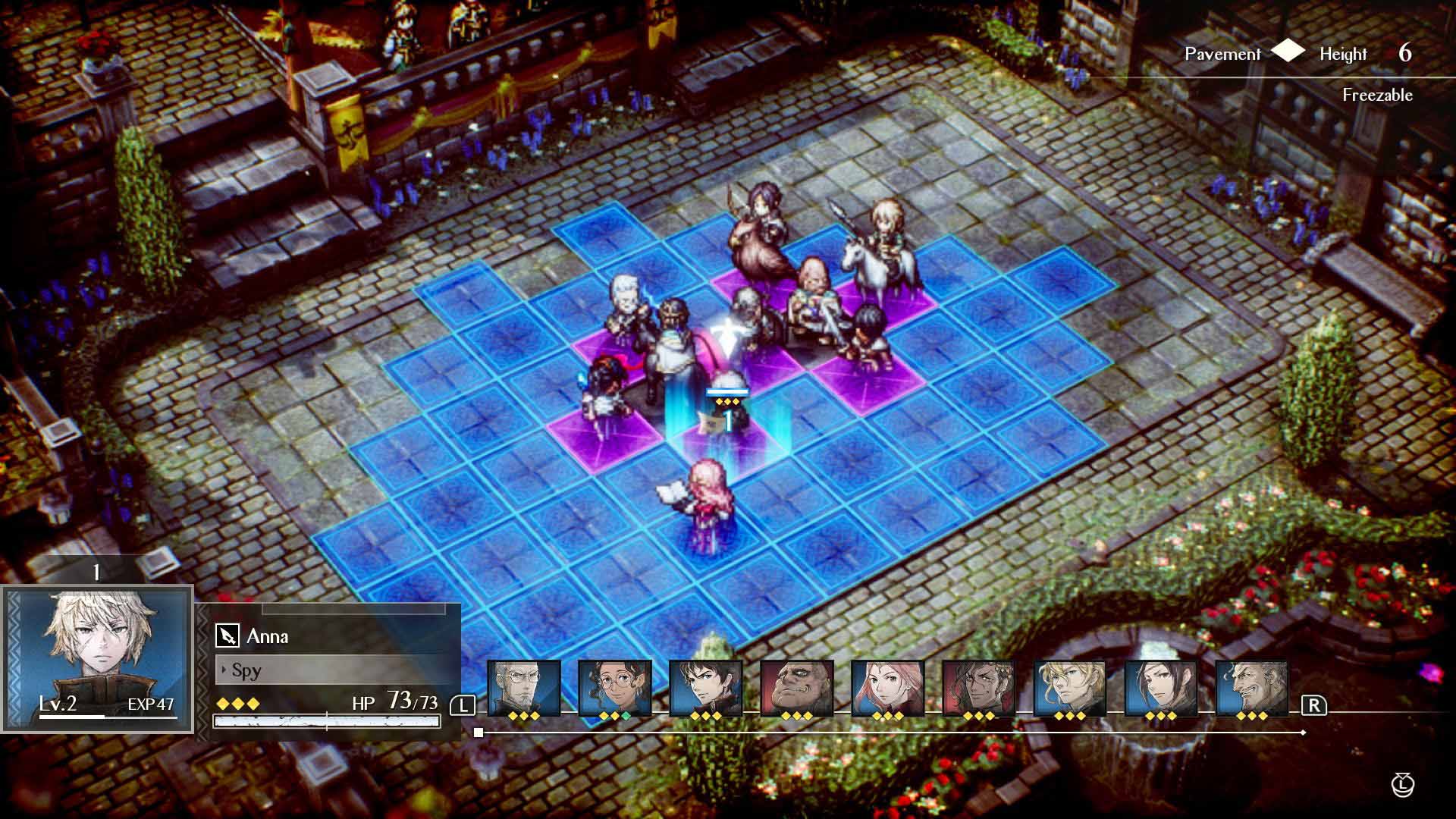
I say knowledge, because this game loves to shift the balance on the player. The amount of times I’d feel I was on top in a fight, and then inexplicably there would be reinforcements arriving, which could tip the balance towards the enemy. Second time around, that knowledge means you can predict and out-think, but it just happened a few too many times for my liking.
As for why I was under-levelled, I feel that’s because I did everything. There are multiple optional (and very useful) characters you will meet on your journey that you can recruit. If you ignored all of them, never placing them into your battle party, you would probably be at the recommended level for every fight. But I wanted to use my new characters. There’s an encampment you can frequent that lets you take place in mock “mental” battles, and I’d strongly suggest pulling out your highest level characters to get your newbies up to a good level. It’s just a strange decision to almost punish the player for fully engaging with all your systems and characters, that’s all.
There are, of course, weapon systems and class systems that let you level up using materials and cash, and there’s a system called “quietus” points that is an additional turn you can use based on which items you’ve accumulated. You can buy more quietus points and abilities via the sundry shop in the encampment, but these items can only be used once per battle, you’ll have to perform well in fights to get the “kudos” to purchase them. It’s likely my fault, but until the battles got tougher towards the end, I kept forgetting I even had this ability, but when the going gets hard, they are incredibly useful, even if it’s to get a character taking his or her turn next, ahead of schedule.
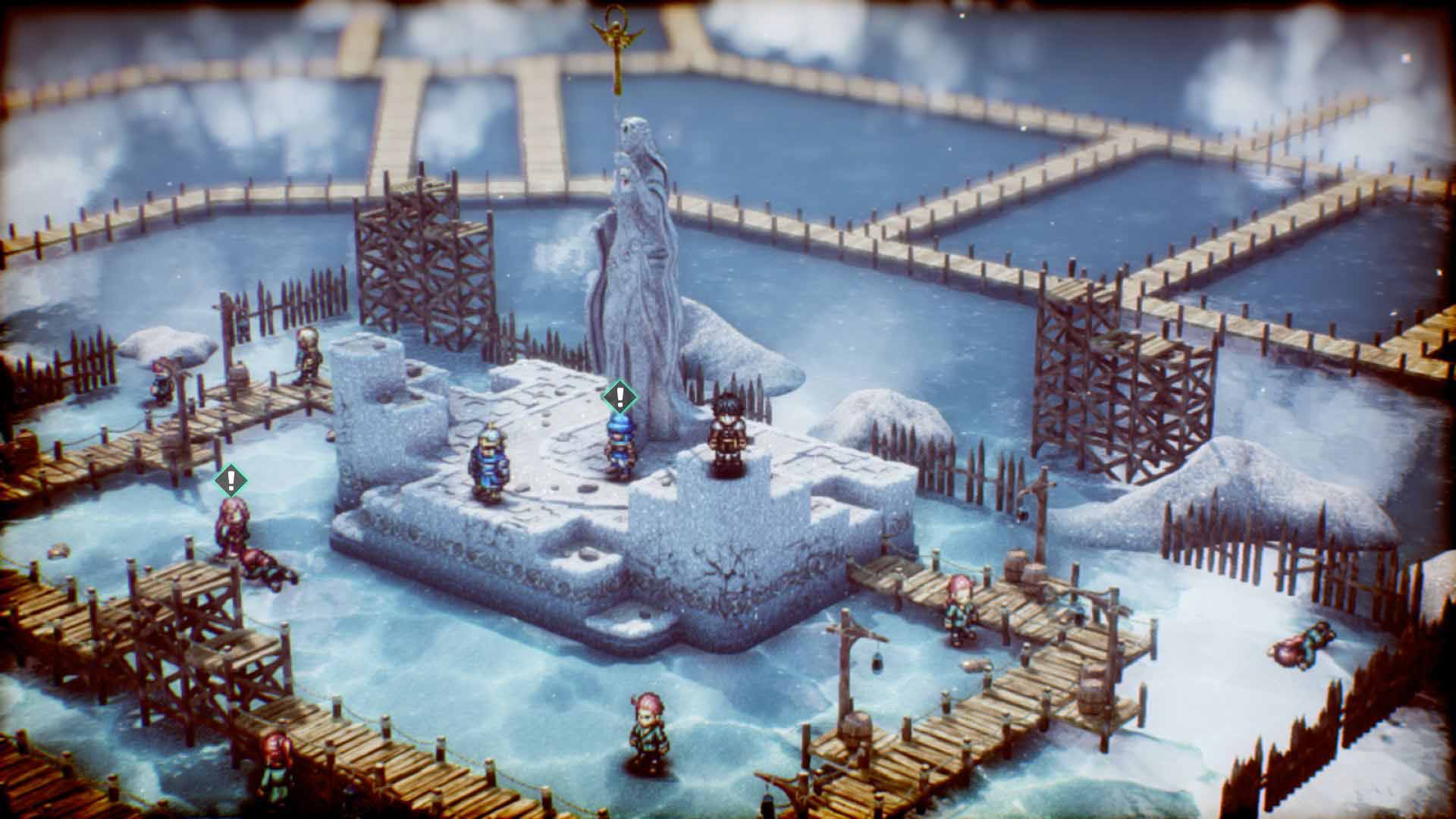
All the systems are in place to make Triangle Strategy a superb experience. The combat is complex and satisfying, and while the battles are long, they rarely felt it. Combining passive characters with fighters to double team enemies, or just get the upper hand on the AI feels incredible, so it’s a bit of a shame that the game seems to want to punish you so often by surprising you with extra enemies towards the end of a fight.
That said, the story is engaging, and the voice acting and visuals play a starring role. I would never get tired of seeing and living in the world, here, and there are so many decisions I made that I want to see alternative paths for, that I’ll be returning to the world of Norzelia pretty soon, because despite a few irritations, it’s a fantastic, deep RPG that thoroughly engaged me from start to finish.





